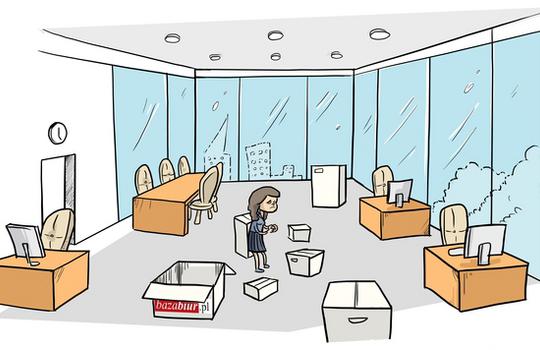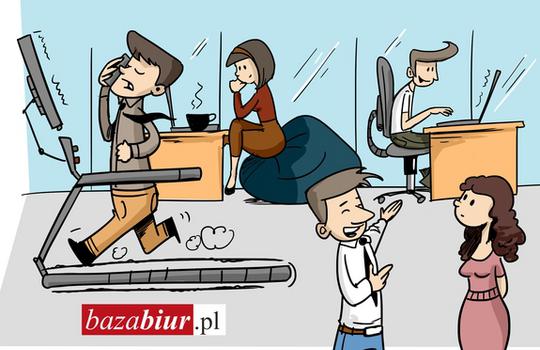Selecting the ideal office space, negotiating lease terms, developing space plans and developing interior design, fit-out works and, finally, relocating to a new office can be a very complicated process. Nevertheless, in this article I will explain how to make it as smooth as possible.
Support
The whole process is rather complicated and consists of planning, selecting an option (long list), a short list, a finalization of the transaction, space arrangement and finally relocation. After the client selects a building that they find the most attractive, it is time for a thorough analysis. At this point, it is a good idea to secure the support of a project manager / technical expert who will help the client to define their technical requirements as well as indicating what else should be expected from an office building. The expert will compare the technical standards of numerous buildings including their architectural setup, building installations, space arrangements, but also the finishing packages on offer and budgets dedicated for these purposes. A project manager will accompany the client during the project’s whole lifetime until the handover and relocation to the new office. Furthermore, it is worth pointing out that this project manager / technical expert is in fact a whole team of people who have in-depth knowledge and experience within construction, building systems, architecture as well as costs.
Technical expertise during building selection
At this point, the technical expert already knows the client’s specific expectations and can thoroughly compare available offers. He will check whether the “space plans” illustrate the client’s real demand for space and includes all required arrangements of the workstations, conference rooms and support/utility areas.
There is no single, widely used market standard for delivering space and owners offer different finishing standards ranging from Shell and Core solutions consisting of completely unfinished space to space finished in accordance to the client’s exact specifications.
The project manager will focus on all details that relate to the abovementioned factors and what effect they have on costs. Furthermore, the manager will break them into their component parts so that it will be easier to compare them as well as explain to the client what they will receive from the building’s owner and what additional costs may be involved in the process. All additional costs identified at this stage will be used within a thorough financial analysis of each and every option.
Provisions in the lease agreement related to the fit-out works
The project manager’s responsibility is to ensure that appropriate provisions included within the lease agreement will allow control over progress of the work as well as its quality and compliance with the tenant’s requirements. This gives the tenant a convenient tool in order to react in response to, for example, potential delays from the developer or in the case of a need to introduce changes to the scope of work in the construction phase. Such guarantees included within lease agreements will also allow for complex handovers of the space as well as efficiently executed defect removal. Furthermore, a technical expert will also ensure that the agreement includes appropriate documents fully describing the subject matter of the lease agreement including space plans, material specifications, cost valuation and work program.
Fit-out works
The fit-out work phase should always begin with design works – a project manager may help us select the right architect and oversee the development of the interior design along with fully detailed documentation for execution purposes. During the construction works, the technical expert serves as the eyes of the tenant on the construction site; they oversee the progress and quality of works, their compliance with approved documentation and the client’s requirements as well as managing control over costs and settlements. Furthermore, the expert oversees the process of implementing potential changes within the scope of works and helps to solve any other problems that may arise.
At the same time, a project manager organizes any required tenders and the contracting of the tenant’s own works. This may consist of, for example, IT installations, furniture and equipment and safety installations. The manager coordinates on- site the abovementioned works with the main construction activities.
It is worth mentioning that although it is market practice that most works are carried out by the landlord, more and more tenants are deciding to employ their own contractors independently and are ready to take on responsibility for the space delivery themselves. In this scenario, a project manager is additionally responsible for conducting all necessary tenders in order to employ an appropriate contractor(s).
Handovers
A project manager’s responsibilities include conducting all tests and handovers – both during the construction works and those after completion. One should ensure that the office space is safe and ready for employees. Therefore, the experts should check not only if everything looks good (straight walls, materials used in accordance with the design) but also, and maybe most important of all, if the air-conditioning, ventilation and other building systems will provide the tenant with the expected comfortable working environment.
Relocation
Depending on the size of leased space, the relocation can be a relatively simple operation that can be finished within one weekend. However, sometimes this may be a process that needs to be planned well in advance, and then carried out in phases (for example, the relocation of large server rooms and data bases). Furthermore, companies that operate 24 hours a day (banks, IT firms, BPO/SSC centers) might need an individual relocation plan including all technical and operational restrictions. One should always bear in mind different building circumstances that might directly influence the progress of relocation works. In particular, this includes access to vehicles and the use of internal communication, such as lifts.
The selection of a new office, project, space arrangement and relocation comprise a demanding venture that requires knowledge and support from experts. It is worth remembering that employing experts at an early stage will allow us not only to have control over deadlines and budgets but will also significantly reduce the stress related to relocation into new office space.











